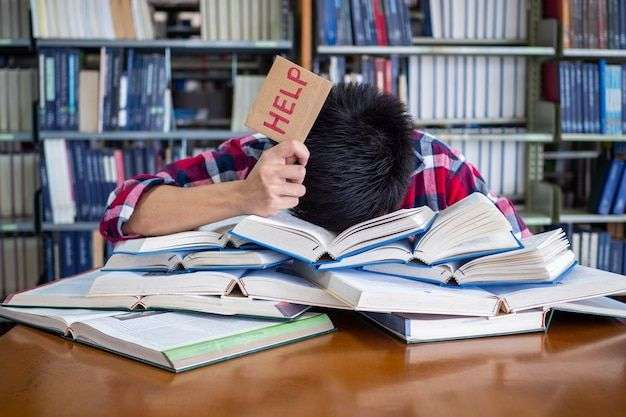In today’s interconnected world, media holds a pivotal role in shaping, influencing, and reflecting societal norms and values. The relationship between media and society is symbiotic, evolving continuously as technology advances and cultural paradigms shift. From the traditional press to the dynamic digital platforms of today, media acts as a mirror to society, showcasing its triumphs, struggles, and complexities. This blog explores how media impacts society and how society, in turn, shapes the media landscape.
The Role of Media in Society
Media serves as the fourth pillar of democracy, a watchdog ensuring accountability, transparency, and fairness. Its functions include:
- Information Dissemination
Media provides vital information about local, national, and global events, helping citizens stay informed. Whether it’s breaking news, public health updates, or policy changes, media connects people to the world around them. - Education
Beyond news, media serves as an educational tool, spreading awareness about social issues like gender equality, climate change, and public health. Campaigns through print, television, and social media often inspire positive change. - Entertainment
From cinema to streaming platforms, media offers escapism and relaxation. It helps society explore emotions, cultures, and narratives, enriching lives through art and storytelling. - Social Connection
Media bridges geographical divides, fostering communication and relationships. Social media, in particular, has created a global village, enabling real-time interaction across borders. - Shaping Public Opinion
Media influences societal perceptions by framing issues in specific ways. Coverage of protests, policies, or conflicts can alter public opinion, highlighting the responsibility media holds.
The Impact of Media on Society
While media has numerous positive effects, it also has significant challenges that shape societal dynamics.
- Empowerment and Awareness
Media amplifies marginalized voices, giving platforms to those unheard. Movements like #MeToo and Black Lives Matter gained momentum through social media, underscoring its power to mobilize and create change. - Cultural Exchange
Media enables the sharing of traditions, music, cuisine, and values, fostering cultural understanding and unity. Platforms like YouTube, Netflix, and Instagram highlight diverse perspectives, broadening societal horizons. - eConsumer Bhavior
Advertising and influencer culture directly impact purchasing decisions, introducing trends and lifestyles. While it boosts economies, it can also perpetuate materialism and unrealistic expectations. - Political Engagement
Media shapes political discourse, providing a stage for debates, rallies, and election campaigns. However, biased reporting or misinformation can polarize societies and undermine democratic processes. - Mental Health Implications
Overexposure to media, especially social media, can lead to anxiety, depression, and body image issues. The constant comparison and pressure to present an idealized version of life have profound psychological effects.
Society’s Influence on Media
Society plays an equally important role in shaping the media landscape. Media organizations adapt to societal demands, preferences, and technological advancements to remain relevant.
- Demand-Driven Content
The rise of reality shows, podcasts, and short-form videos reflects changing consumer preferences. Media evolves based on what society consumes and values. - Advancements in Technology
From newspapers to smartphones, technological shifts redefine how media is produced and consumed. Society’s adaptation to these changes influences media platforms to innovate constantly. - Regulation and Accountability
Societies often demand ethical journalism and accountability. Regulatory bodies, factchecking organizations, and public watchdogs ensure media maintains integrity. - Cultural Representation
Media content reflects societal values and concerns. Films, music, and literature showcase evolving gender roles, cultural identities, and social issues, serving as a chronicle of societal change.
Challenges in the Media-Society Dynamic
Despite its benefits, the media-society relationship faces significant challenges:
- Fake News and Misinformation
The digital age has amplified the spread of false information. Deepfakes, doctored images, and fake news can manipulate public perception, eroding trust in media. - Echo Chambers
Algorithms on social media create echo chambers, where users are exposed only to views that align with their own, fostering polarization and limiting open discourse. - Media Ownership and Bias
Corporate and political influences on media ownership can lead to biased reporting, compromising journalistic objectivity. This undermines media’s role as an impartial informer. - Privacy Concerns
In the pursuit of engagement, media platforms often compromise user privacy. Data breaches and unethical practices raise questions about the ethical responsibilities of media entities. - Censorship and Freedom of Press
Governments in some regions impose censorship, restricting freedom of expression. This stifles dissent and limits the media’s role as a democratic safeguard.
The Way Forward
To ensure a healthy relationship between media and society, it is essential to address these challenges through collective effort:
- Media Literacy
Educating society to critically evaluate media content can combat misinformation and reduce its impact. Media literacy programs should be included in educational curriculums. - Ethical Journalism
Media organizations must prioritize unbiased reporting and transparency, upholding the principles of responsible journalism. - Fact-Checking Initiatives
Promoting fact-checking tools and platforms can curb the spread of false information, ensuring credibility in media content. - Community Engagement
Media should actively involve communities in content creation, reflecting diverse voices and perspectives. - Regulatory Frameworks
Governments and international bodies must establish frameworks to balance press freedom with accountability, safeguarding democratic principles.
Conclusion
Media and society are deeply interwoven, each influencing and shaping the other. While media has the power to enlighten, entertain, and empower, its misuse can harm societal cohesion and progress. Likewise, society must engage responsibly with media, demanding integrity and fairness. By fostering a balanced, ethical, and informed media landscape, we can ensure that this relationship continues to thrive, supporting a more inclusive and connected world.
In the end, media is both a reflection of society and a tool to reshape it. The onus lies on both creators and consumers to use this powerful medium wisely, steering it towards a brighter, more equitable future.


